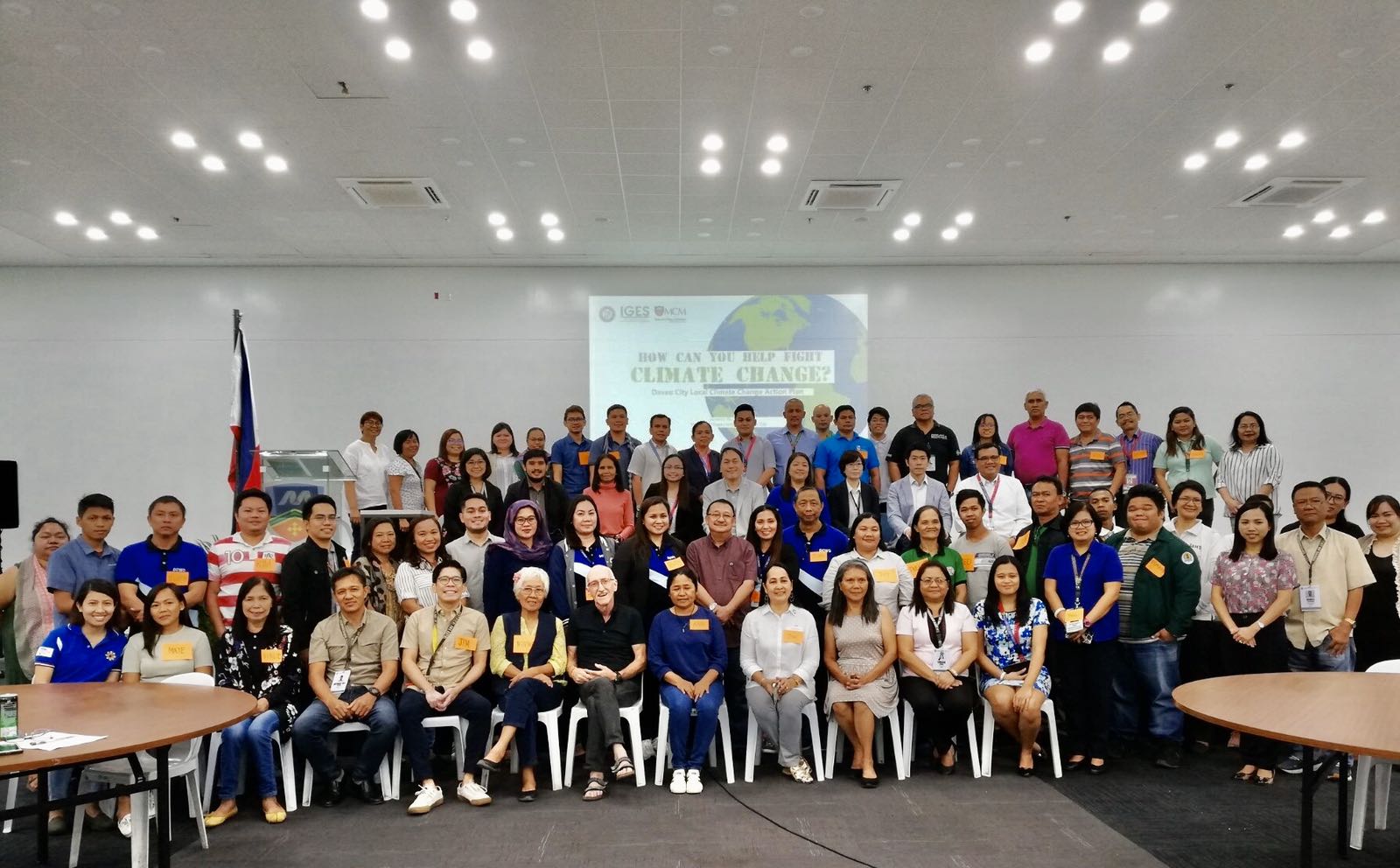
January 29, 2020 Wednesday

January 30, 2020 - At the workshop for the Formulation of Local Climate Change Actions for Davao City held today, Climate Change Commissioner Rachel Herrera said that addressing the climate crisis requires us to change the way we think and work and that transformative action is key to effective climate change action.
The City Government of Davao, in partnership with the Institute for Global Environmental Strategies (IGES)-Japan and Malayan Colleges Mindanao, organized the two-day workshop with the aim of deepening the understanding of climate change causes, impacts, and risks for the city, as well as gather support and commitment for its Local Climate Change Action Plan (LCCAP).
“Adaptation, done right, saves lives and protects the place we call home. Adaptation, done right, creates opportunity, and builds a better future for us all. Our choice is clear: Do we delay and pay, or plan and prosper?” Herrera said.
“It is now a must for local government units, especially cities being economic hubs with a huge population, to act now to adapt to climate change. It is now a must for LGUs to integrate nature-based solutions into spatial planning, investments, and infrastructure implementation to reduce climate risks. We must put premium in ensuring that the ecosystem services—or the wealth that comes from nature–will not be derailed by the impacts of climate change,” Herrera added.
Herrera cited findings from the Philippine Climate Change Assessment, a three-volume report that the Climate Change Commission (CCC) produced together with the Oscar M. Lopez (OML) Center, which identified Davao del Sur as one of the most vulnerable to drought and tropical cyclones.
The report further indicated that reduced rainfall, increasing temperature, and increasing frequency of drought conditions in the region can lead to risks of grass, bush, or forest fires in highly vulnerable forest areas; reduced productivity in agricultural areas; reduced productivity in community-based forest management (CBFM) areas; and slower growth and development of industrial forestry areas.
Moreover, Davao City is also listed as one of the top 25 cities with the largest population exposure to storm surges caused by strong winds from typhoons, which can pose risks on human health, such as surge in dengue fever transmission; respiratory diseases, such as asthma and bronchitis; and heat-related illnesses, such as heat stress and dehydration.
“What is alarming is that, if planning, financing, and production across economies will go business-as-usual, our average global temperature is on track to increase by at least 3 to 4 degrees Celsius towards the end of the century—twice of what climate experts have warned as the 1.5 degrees Celsius limit to avoid the most severe economic, social, and environmental consequences,” Herrera explained.
“The threat may be global, but we know that a truly effective response must be local. We must therefore recognize the crucial role of local government units in ensuring that our communities are aware and able to adapt to climate impacts, being in the frontlines in this fight,” Herrera added.
Commissioner Herrera also mentioned the CCC’s flagship program, the Communities for Resilience (CORE) Program, which aims to strengthen the capacity of local leaders and planners in mainstreaming climate change in development planning and investment programming processes, as well as ensure that the LCCAPs of LGUs are science-based and risk-informed as these will serve as good foundations towards accessing climate finance, such as our national People’s Survival Fund (PSF).
Herrera also commended Davao City for its proactive work to include climate change adaptation and mitigation and disaster risk reduction (CCAM-DRR) into local development plans, as well as accomplishing a comprehensive climate and disaster risk assessment and identifying adaptation and mitigation priority actions for the city.
“Our workshop today will further strengthen Davao’s commitment towards sustainable development, where nature is a stakeholder, and ensuring that no Davaoeño is left behind. It is also our hope that Davao will become a prime example to encourage other LGUs to follow suit in moving towards scaled up actions in climate change adaptation and mitigation, so that we can be one step closer to our vision of a climate-resilient Philippines,” Herrera concluded.